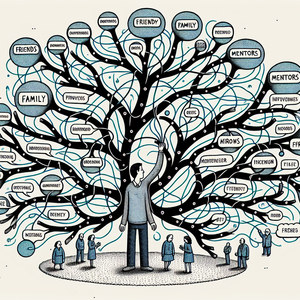Charging Up: The Future of Battery Recycling in New York

The surge in the use of lithium-ion batteries, propelled by the rise of electric vehicles (EVs) and renewable energy storage, has led to a dramatic increase in battery waste. According to a report from the International Energy Agency (IEA), the number of electric vehicles on the road is expected to reach 230 million by 2030, resulting in millions of tons of battery waste as these vehicles reach the end of their lifecycle. Without effective recycling processes, these batteries can pose significant environmental risks due to hazardous materials such as lithium, cobalt, and nickel. In New York, the urgency for recycling initiatives is underscored by state policies aimed at reducing waste and promoting sustainable practices. The New York State Department of Environmental Conservation (DEC) has instituted programs to encourage the proper disposal and recycling of batteries, recognizing the importance of keeping these materials out of landfills. The state's commitment to sustainability is reflected in its ambitious goals to achieve a 50% reduction in greenhouse gas emissions by 2030, which cannot be accomplished without addressing battery waste management.
Innovative Companies Leading the Way
Several companies in New York are at the forefront of battery recycling technology, each employing unique strategies to reclaim valuable materials from used batteries. One notable player is Li-Cycle, based in Rochester, which has developed a proprietary process that can recycle up to 95% of the materials found in lithium-ion batteries. Their innovative approach not only reduces the environmental impact of battery waste but also provides a sustainable source of raw materials for new batteries. Li-Cycle's facilities are designed to be environmentally friendly, ensuring that the recycling process itself does not contribute to pollution or waste. Another key player is Battery Resourcers, which operates out of Worcester, MA, but has significant operations in New York. This company utilizes a hydrometallurgical process to recycle batteries, extracting valuable materials while minimizing waste. Their commitment to sustainability is evident in their closed-loop system, which aims to create a circular economy for battery production and recycling. By recovering materials like lithium, cobalt, and nickel, Battery Resourcers not only mitigates the environmental impact of mining but also supports the growing demand for these materials in new battery production.
Technological Advancements and Collaboration
The advancement of battery recycling technologies in New York is often bolstered by collaboration between businesses, government entities, and academic institutions. Research initiatives at universities such as Columbia University and the City University of New York (CUNY) play a crucial role in developing new techniques and improving existing processes. For instance, researchers at Columbia are exploring innovative methods to enhance the efficiency of battery material recovery, potentially transforming the recycling landscape. Moreover, partnerships between startups and established companies are fostering a culture of innovation. For example, Talon Metals, a Canadian mining company, has collaborated with New York-based firms to explore sustainable mining practices that align with battery recycling efforts. By harnessing the collective expertise of various sectors, these collaborations are paving the way for groundbreaking advancements in battery recycling, ensuring that New York remains a leader in this critical area.
Environmental Implications and Future Prospects
The environmental implications of effective battery recycling are profound. By reclaiming valuable materials from used batteries, companies can significantly reduce the demand for mining new resources, which often involves environmentally invasive practices. Furthermore, recycling helps mitigate the risks associated with improper disposal, such as soil and water contamination. Looking ahead, the future of battery recycling in New York appears promising. With increasing investment in sustainable technologies and a growing awareness of the importance of recycling, the state is poised to become a leader in this crucial sector. Initiatives such as the Battery Recycling Act, which aims to establish a comprehensive battery recycling program, highlight New York's commitment to creating a sustainable future.
As New York embraces the potential of battery recycling, the implications extend far beyond the state’s borders. The innovative companies and collaborative efforts taking shape in New York serve as a model for how communities can address the challenges posed by battery waste. By investing in recycling technologies and policies that promote sustainability, New York is not only working towards a greener future but also setting the stage for a circular economy that could inspire similar initiatives worldwide. The journey toward a sustainable energy future is undoubtedly a complex one, but with the right strategies in place, it is a journey worth taking. By fostering innovation in battery recycling, New York is contributing to a global movement that prioritizes sustainability and responsible resource management, ultimately helping to protect our planet for future generations.
Battery Recycling Process Engineer
Li-Cycle, Battery Resourcers, American Battery Technology Company
Core Responsibilities
Design and optimize processes for recycling lithium-ion batteries to maximize material recovery.
Collaborate with R&D teams to develop innovative recycling technologies and methods.
Conduct feasibility studies and cost-benefit analyses to assess new recycling initiatives.
Required Skills
Bachelor’s or Master’s degree in Chemical Engineering, Materials Science, or a related field.
Strong knowledge of hydrometallurgical and pyrometallurgical processes.
Experience with process simulation software (e.g., Aspen Plus).
Sustainability Analyst
Environmental consulting firms, Municipal governments, Corporations with sustainability initiatives
Core Responsibilities
Analyze and report on sustainability metrics related to battery recycling initiatives.
Develop sustainability strategies to align with company goals and regulatory compliance.
Monitor industry trends and emerging technologies in battery recycling and renewable energy.
Required Skills
Bachelor’s degree in Environmental Science, Sustainability, or Business Administration.
Proficiency in data analysis tools (e.g., Excel, Tableau) and sustainability reporting frameworks (e.g., GRI, CDP).
Strong communication skills to present findings to stakeholders.
Research Scientist in Battery Materials
Columbia University, CUNY, Battery Resourcers
Core Responsibilities
Conduct research on new materials and methods for improving battery efficiency and recyclability.
Collaborate with academic institutions and industry partners to advance battery technology.
Publish findings in scientific journals and present at industry conferences.
Required Skills
PhD in Materials Science, Chemistry, or a related field.
Expertise in battery chemistry and material characterization techniques (e.g., XRD, SEM).
Strong analytical skills and the ability to work in a laboratory environment.
Environmental Compliance Specialist
Waste management companies, Environmental consulting firms, Corporations with sustainability departments
Core Responsibilities
Ensure adherence to local, state, and federal regulations related to battery recycling and waste management.
Develop and implement compliance programs and training for staff.
Conduct audits and assessments to identify compliance gaps and recommend corrective actions.
Required Skills
Bachelor’s degree in Environmental Science, Environmental Engineering, or a related field.
Knowledge of environmental regulations (e.g., RCRA, EPA guidelines).
Strong organizational skills and attention to detail.
Business Development Manager - Circular Economy
Startups in the sustainability space, established recycling firms, and consulting companies focused on circular economy initiatives
Core Responsibilities
Identify and pursue new business opportunities in the battery recycling and circular economy sectors.
Build strategic partnerships with key stakeholders, including manufacturers and recycling firms.
Develop proposals and presentations to attract potential clients and investors.
Required Skills
Bachelor’s degree in Business, Environmental Science, or a related field.
Proven experience in sales or business development, preferably in sustainability or cleantech.
Strong negotiation and relationship-building skills.


